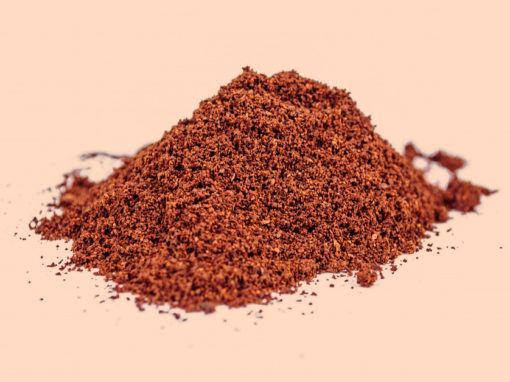Hormones are chemical messengers synthesised by your body’s endocrine system to control various processes in the body.
These chemicals effectively help to coordinate multiple bodily functions such as emotions, sexual functions, growth and development, metabolism and sleep.
Studies have shown that there are over 50 different hormones in humans. Among these, testosterone plays a vital role in developing male characteristics and maintaining sexual function.
What is testosterone?
Testosterone is an essential hormone that regulates muscle mass, fat distribution, libido, fertility, and red blood cell production etc.
It also has an impact on the mood of a person.
This hormone is produced in humans and other animals—primarily by the testicles in men and smaller amounts from a woman’s ovaries.
This hormone increases after puberty and starts reducing once a person crosses 30 on average.
When testosterone levels drop below healthy levels, it can lead to certain conditions such as infertility or “hypogonadism”. However, if that is the case, there are several methods by which you can artificially boost the testosterone levels in your body.
Low testosterone is more common than high testosterone due to our unhealthy modern lifestyle. Several different studies have indicated that more than 40% of men beyond 45 years have some or other symptoms of low testosterone in their bodies.
Role of testosterone
As mentioned above, testosterone is an essential sex hormone in males and has various essential functions such as:
- Sperm production
- Libido (sex drive)
- The appearance of facial and pubic hair after puberty
- Deepening of voice during puberty
- Development of muscular size and strength
- Development of bone marrow and growth

If the testosterone production is not adequate in adolescent boys, there is a high chance that they may not develop masculine features.
For example, in many cases, it has been noted that boys with a low volume of testosterone in their body, will have a scanty body and facial hair, a voice that is not deep enough, and prepubertal genitalia.
There may be more functions of this hormone that are yet to be discovered.
Testosterone is also known to play an essential role in balancing the mood. For testosterone production, the brain sends signals to the pituitary gland, a tiny pea-shaped gland located at the base of the brain.
The pituitary gland then signals the testes to produce testosterone hormone. The brain monitors the testosterone volume in the blood utilising a specific “feedback loop”. When the testosterone levels in the blood shoot up, the brain directs to the pituitary to reduce the production.
If you think testosterone is only produced in the testes, you are mistaken. This hormone is also produced in the adrenal glands and ovaries. In addition, testosterone is one of the most important male sex hormones found in females.
In females, this hormone plays a vital role in
- Building bone strength
- Healthy functioning of the ovaries
- Libido
Although their most important sex hormone is oestrogen, it is also possible that androgen has a vital role in healthy brain function, cognitive function and maintaining sex drive in females as well.
Normal testosterone levels by age
Normal testosterone levels are generally taken as normal if it is above 12nmol/l. Anything less than 12 nmol/L is considered low and less than 8nmol/L is considered very low. Both call for testosterone replacement.
Testosterone tests
To determine the testosterone level in your body, you need to take a blood test if indicated by your doctor.
The test is usually performed in the morning when testosterone levels are maximum in your blood. However, you will have to repeat the test to confirm specific measurements in some instances.
Before getting your blood test, your doctor will ask you to stop any medications that interfere with your test results.

These include:
- Androgen or oestrogen therapies
- Steroids
- Anticonvulsants
- Barbiturates
- Opiates
In addition, you could also use testosterone home testing kits which use saliva or blood to determine the levels.
However, research has indicated that saliva sometimes doesn’t give accurate results, and it is always advisable to do a blood test for precise numbers.
Testosterone imbalances
It is usual for testosterone levels to decline slowly as a man ages. If you are facing testosterone imbalance in your body, it can come as various symptoms.
Adopting a healthy lifestyle can help . However, in certain other cases, medical intervention is necessary.
Low or high testosterone levels can result in the dysfunction of body parts that are naturally regulated by this hormone.
Low testosterone levels
A man who has hypogonadism or low testosterone levels in the body may experience:
- Low sperm count
- Erectile dysfunction
- Enlarged breast tissue
- Reduced sex drive
- Loss of strength
- Loss of muscle mass
- Increased body fat
- Poor sleep
- Fatigue
- Weight gain

High testosterone levels
If you have high testosterone levels, you may experience
- Headaches
- Acne
- Excess body hair
- Liver or heart problems
- Enlargement of prostate
- Insomnia
- Infertility
- Mood swings
- Low sperm count
- Aggressive behaviour
- Increased Appetite
- Swelling at leg and feet
- High BP
- High sex drive
- Sudden unexplained weight gain etc.

What causes testosterone imbalance?
Testosterone imbalance is either genetically inherited, caused by lifestyle factors or both. Here are some of the critical reasons for the imbalance in testosterone.
Ageing: As a person starts to age, testosterone production in the body will gradually decrease. In some people, the decline is sudden, while for others, it is slow.
Genetics: Several research papers have indicated that testosterone imbalance could be genetically inherited. If any of your ancestors had testosterone imbalance, there is a high probability that you could be carrying those unhealthy genes.
Excess body fat: Having a high percentage of fat in the body can affect the production of testosterone hormone.
Stress: Having excessive stress for an extended period can create imbalances of vital hormones in the body, including testosterone.
Exercise: Constant lack of exercise can lower testosterone levels in your body. On the other hand, regular exercises such as weight lifting help to boost its production.
Diet: Certain food items such as vegetable oil, soy products etc., are known to reduce the level of testosterone in the body. In contrast, food items such as avocados, green leafy vegetables, eggs and fatty fish help to improve the levels. Too little consumption of food also causes the levels to decline.
Treatment for specific diseases: Certain medical treatments such as chemotherapy, radiation therapy can result in testosterone imbalance in the body.
Medical conditions: Any disease that affects the normal functioning of the testes can affect testosterone production in the body. In addition, health conditions affecting the pituitary gland also affects its production as this is the gland that signals the testes to produce this hormone.
Treatment for testosterone imbalance
As mentioned in the above section, an imbalance of testosterone can bring in various health problems. However, years of meticulous scientific studies have brought many different ways to effectively treat testosterone imbalance in the body.
Here are some of the proven and effective methods
Testosterone supplements
Using testosterone supplements is one of the commonly used methods for restoring testosterone balance in the body.
Although several medications are waiting to be approved by the FDA, methyltestosterone is the one that has received approval for use.
However, doctors only prescribe this treatment to a specific set of illnesses of a specific population. This is mainly due to the presencce of better alternatives and fewer effects to organs such as the liver.
Testosterone replacement therapy
This is another effective alternative to testosterone supplements, which can help restore low testosterone function.
Research has indicated that Testosterone replacement therapy(TRT) can help restore healthy bodily functions that were affected due to low testosterone.
TRT has a positive impact on haemoglobin levels in the body and variable results in cognition..
Methods of Testosterone Replacement Therapy
If your healthcare provider recommended testosterone replacement therapy, here are some of the methods by which it is performed.
Injections
Several different variants of testosterone injections are available that can be injected. A certified medical practitioner usually performs the injections, and the effects may last up between two to four weeks before a new shot is necessary.
Topicals
These are commonly applied on the surface of the skin. These include:
- Patches
- Gels and
- Solutions
Pellets
Pellets containing testosterone are implanted underneath the skin near the hip region. They release the testosterone slowly in about three to six months.
Cheek(Buccal)
These are oral patches containing testosterone that can be attached to the gums above the incisors. This method helps in the easy absorption of the hormone and is applied twice a day.
Nasal gel
Here, a gel is applied inside the nasal cavity in each nostril three times a day. However, doctors only prescribe it as a last resort as further scientific evidence is necessary to prove it safe.
In most cases, your doctor will prescribe you topical gels at first.
TRT, sometimes, may interfere with certain medications and lead to developing some other health issues.
Thus, discuss with your doctor to understand the pros and cons before planning to take the treatment.
Is there any risk of TRT?
Although the testosterone replacement therapy was effectively used to improve testosterone in several patients, it is a highly debatable topic whether it is effective in most cases.
Reports from Harvard Health have indicated that the current study has several limitations in determining the long term effects of this therapy. For example, some studies have suggested that TRT increases or decreases certain types of cancer.
On the other hand, a 2015 study conducted on Testosterone Replacement Therapy has indicated that it positively impacts the stroke and mortality rate.
If you are planning for TRT, the best thing to do is discuss the pros and cons of this treatment with your doctors.
Some common side effects of TRT include:
- Acne
- Deep vein thrombosis
- Lower HDL cholesterol
- Pulmonary embolism
- Swelling in legs and hands
- Enlarged prostate
Prohormone supplements
These are specific steroid types used for weight loss and muscle building.
Several prohormone supplements are available to treat low levels of testosterone. These include androstenedione or androstenediol.
Several variants later emerged in the market with chemical composition as prescribed by the law. But studies didn’t find any convincing evidence that these help improve testosterone levels.
Before consuming any of these herbal supplements, thoroughly research to ensure that the product you’re choosing is free from potential health risks.
In addition, Prohormone supplements increase the oestrogen levels instead (a “female” hormone) in the body and only a modest increase in testosterone level.
Natural techniques to improve testosterone
Here are some of the important ways to improve testosterone levels in the body.
1. Staying active
Studies have indicated that the testosterone levels in the body are higher for active individuals. The more active an individual, the higher will be the testosterone levels.

2. Consuming a balanced diet
A well-balanced diet will help maintain testosterone levels and the body’s overall health. Low testosterone levels are commonly found in people who are overweight and underactive.
3. Keep your stress under control
Research has shown that people under constant stress tend to have a low testosterone level in their bodies. Therefore, managing your stress is the key to maintaining healthy levels of this male hormone.
4. Avoid interfering medications
Certain medications can sometimes negatively interact with testosterone levels. Stopping the medication or using an effective alternative will help to improve the levels. Talk to your doctor regarding this.
5. Get adequate sleep
Lower testosterone levels are normal in people who are sleep deprived. Therefore, getting an ample amount of sleep for 8-10 hours helps you effectively restore the body’s hormone levels.
6. Consume mineral supplements and vitamins
Testosterone is low in people deficient in essential vitamins and minerals needed for its synthesis.
Consuming healthy vitamins and minerals such as Vitamin D, Zinc, and Manganese helps you retain optimum levels in the body.
7. Avoid drugs and alcohol
Too much consumption of alcohol or drugs affects the glands responsible for predicting essential hormones including testosterone.
Minimising your alcohol intake and maintaining a healthy lifestyle can improve testosterone levels in the body.

Final Words
Testosterone is undoubtedly a vital hormone required by men and women to maintain their bodily functions.
Hormonal imbalances, diet, and unhealthy lifestyle negatively impact its levels in the body. Having low volumes of testosterone in the body can result in a wide range of symptoms as discussed in this article.
If you suspect that your body might be having less than the adequate testosterone volume, consult a certified doctor and get a blood test to determine the testosterone volume in your blood.

Taking proper treatment for low testosterone can help to prevent the problem from complicating further.
Check out these popular testosterone supplement products that can be discreetly delivered to your home.


